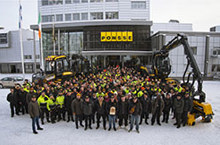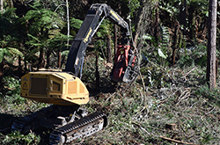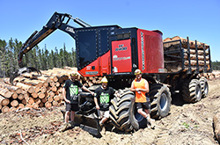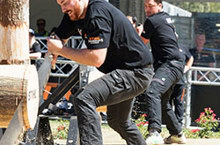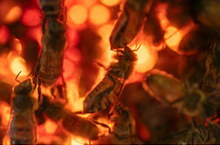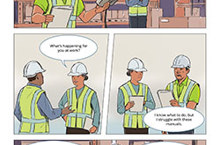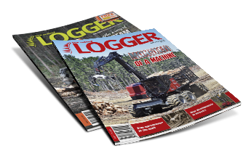
A new partnership between Northland Inc and Te Kunenga ki Pūrehuroa Massey University is set to strengthen education, research, and innovation opportunities across Te Tai Tokerau’s food and fibre sector, with the signing of a Waka Hourua (Heads of Agreement) in Whangārei earlier this month.
The agreement, signed by Northland Inc Board Chair, Suzanne Duncan, and Massey University Vice-Chancellor, Professor Jan Thomas, signals a shared commitment to build a future where tertiary education, research and regional development work hand in hand to uplift people, communities and industries across the region.
The Waka Hourua framework draws on the symbolism of a double-hulled voyaging canoe - two strong hulls, each with their own strengths and momentum, navigating together in the same direction. It represents a commitment to collaboration, balance and purpose.
For Te Tai Tokerau, that shared purpose is clear. Primary industries such as forestry, pastoral farming, horticulture and fishing and aquaculture, remain the economic backbone of the region, contributing more than ~$1.4 billion to Northland’s Gross Domestic Product (GDP) each year and accounting for ~68% of the value of Northland’s exports.
Despite the significance to the region, the supporting systems for education, training, and research have not always kept pace, leaving untapped potential across the region. Many of Northland’s young people leave the region to study, and businesses often need to look elsewhere for research support or technical expertise. The Waka Hourua partnership aims to change that, by building a strong, enduring Massey University presence in Northland and co-developing programmes that reflect local needs and aspirations.
Suzanne Duncan, Chair of Northland Inc, says the agreement represents an important step in unlocking the full potential of Te Tai Tokerau’s food and fibre sector.
“We know that the future of food and fibre in Northland depends on the people who grow, study, and innovate here. Having Massey University working alongside our communities and industry partners - in our region, on our whenua - will build capability and confidence from the ground up.
“This partnership is about action: getting teaching and research happening locally, connecting students to opportunities, and building pathways that mean our young people don’t have to leave Northland to access world-class learning and leadership.”
The agreement establishes a platform for collaboration between the university, Northland Inc, iwi, local schools and industry. It sets out shared priorities that include:
- Supporting secondary schools to deliver quality learning in agriculture, horticulture, food technology and environmental management.
- Co-developing tertiary pathways from Level 1–3 training through to advanced qualifications and degrees.
- Growing regional research partnerships, including with Northland Agricultural Research Farm (NARF), the Kaipara Moana Restoration project, Ngāwhā Innovation and Enterprise Park, and iwi-led initiatives in food and fibre.
- Exploring the development of micro-credentials and short-courses that respond directly to local workforce needs.
- Working toward a physical Massey presence within the planned Whangārei Knowledge Hub, ideally by mid-2026, including the appointment of two roles based in Northland.
Massey University Vice-Chancellor Professor Jan Thomas says the Waka Hourua partnership reflects a natural alignment between Massey’s expertise and Northland’s ambitions. “Our university’s roots are in agriculture, horticulture and applied food technology, and we’re deeply committed to supporting regional Aotearoa New Zealand. Working with Northland Inc, iwi, schools and industry partners, provides an opportunity to co-design education and research that reflects the unique strengths and aspirations of Te Tai Tokerau.
“Massey’s core mission has always been about creating enduring impact for learners, for communities, and for the land. As the leading distance education provider in New Zealand, we want to see more of our students studying in the regions, more research projects embedded in local contexts, and more collaboration that connects knowledge with practice. The Waka Hourua agreement provides the foundation for that in Northland.”
The first phase of the partnership begins in early 2026.

